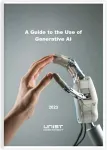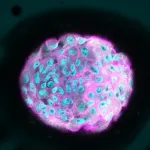(Press-News.org) The Aegis Consortium, an initiative of the University of Arizona Health Sciences, awarded approximately $650,000 in seed funding to eight pilot research projects in the areas of pandemic control, prediction or preparedness; post-acute effects of pandemics on individuals and societies; and the resilience of built and natural environments.
“As we explore the challenges of pandemics such as COVID-19, we will continue to expand our investigative reach with domestic and international research teams to provide a range of solutions for preparedness, mitigation and recovery,” said Janko Nikolich, MD, PhD, director of the Aegis Consortium and head of the Department of Immunobiology at the UArizona College of Medicine – Tucson. “Together, we will become a force that challenges future pandemics.”
The one-year funding will assist with initial costs and data collection with the end goal of strengthening applications for external funding from large national organizations. Awardees may be eligible for a second year of funding depending on progress and impact.
The following projects were funded:
“Development of Broadly Effective Coronavirus Diagnostics and Vaccines Using Evolution-proof Antibodies,” led by Deepta Bhattacharya, PhD, professor of immunobiology in the College of Medicine – Tucson, and Michael Worobey, PhD, head of the Department of Ecology and Evolutionary Biology in the UArizona College of Science. This project aims to generate antibodies, tests and vaccines to be used as interventions early in an outbreak before a new virus has been precisely identified.
“Agent-Based and Graphical Models for Pandemics Prediction and Prevention,” led by Michael Chertkov, PhD, professor of mathematics in the College of Science, and Alon Efrat, PhD, associate professor of computer science in the College of Science. The purpose of this project is to create reliable, coherent and data-driven models to predict the spread of infectious disease at different scales.
“Predictions of Vector-borne and Zoonotic Disease Spread: A Collaborative Response Network,” led by Leigh Combrink, PhD, assistant professor of wildlife disease and conservation in the UArizona College of Agriculture, Life and Environmental Sciences, Kacey Ernst, PhD, MPH, professor and chair of the Department of Epidemiology and Biostatistics in the UArizona Mel and Enid Zuckerman College of Public Health, and Michael Riehle, PhD, professor of entomology in the College of Agriculture, Life and Environmental Sciences. This project seeks to equip local governments with tools to accurately predict and respond to emerging infectious diseases and guard against the threat of a vector-borne pandemic.
“BIHDS: Building Integrated Health Data Systems to Identify and Respond to the Next Pandemic,” led by Karen Lutrick, PhD, associate professor of family and community medicine in the College of Medicine—Tucson. The goal of this project is to connect different health care systems with real-world data in order to expand monitoring across all stages of medical processes.
“Broad-spectrum Inhibitors against Viral Methyltransferases,” led by Hongmin Li, PhD, professor in the UArizona R. Ken Coit College of Pharmacy. This project aims to produce broad-spectrum, direct-acting antivirals for a re-emerging but neglected family of viruses for which there are no Food and Drug Administration-approved drugs.
“Genomic Epidemiology of Avian Influenza Viruses in the Southwest U.S.,” led by Matthew Scotch, PhD, MPH, assistant dean and professor in the College of Health Solutions and the Biodesign Institute at Arizona State University. Co-investigators include Michael Worobey, PhD, department head and professor of the Department of Ecology and Evolutionary Biology in the College of Agriculture, Life and Environmental Sciences; Craig Woods DVM, MS, MBA, director of infectious disease and biosecurity projects in the Institute For Future Health at ASU, Arvind Varsani, PhD, professor in the Biodesign Institute and the School of Life Science at ASU, and Kevin McGraw, professor and associate director of operations and facilities in the School of Life Sciences at ASU. This study will monitor the evolution and genetic variation of highly pathogenic avian influenza in the Southwest by collecting and sequencing samples from birds and the environment. Avian influenza is one of the major infectious disease risks facing the world.
“An Immersive Built Environment Intervention to Reduce Burnout Amongst Frontline Workers,” led by Esther Sternberg, MD, professor of medicine in the College of Medicine – Tucson and director of research at the college’s Andrew Weil Center for Integrative Medicine, J. Ray Runyon, PhD, assistant research professor of environmental science in the College of Agriculture, Life and Environmental Sciences, Mari Ricker, MD, professor of family and community medicine in the College of Medicine – Tucson, and Mirelle Phillips, CEO and founder of Studio Elsewhere. This project will address a serious pandemic workforce issue and provide solutions to prevent and reduce burnout through the built environment.
“Development of a New Strategy for Quantifying the Environmental Transmission of Infectious Diseases in the Built Environment for Selecting Non-pharmaceutical Interventions,” led by Kelly Bright, PhD, associate research professor of environmental science in the College of Agriculture, Life and Environmental Sciences, Amanda Wilson, PhD, assistant professor in the Zuckerman College of Public Health, and Charles Gerba, PhD, professor of environmental science in the College of Agriculture, Life and Environmental Sciences. This study will quantify the risk of viruses becoming airborne based on certain activities and provide a new tool for determining which non-pharmaceutical interventions best reduce the transmission of infectious diseases.
The Aegis Consortium is building a diverse network of experts – virologists, economists, public health specialists, information architects, engineers and more – and tapping into all corners of the human experience to develop comprehensive pandemic-prevention solutions.
More than 200 UArizona faculty and over 100 external partners have led or participated in Aegis-related initiatives and research efforts since its inception in 2021.
END
Aegis Consortium funds research aimed at reducing the threat of future pandemics
The Aegis Consortium awarded seed funding to eight projects that align with the UArizona Health Sciences center’s mission to create a pandemic-free future.
2023-09-14
ELSE PRESS RELEASES FROM THIS DATE:
UNIST releases generative AI utilization guide to promote smart usage of ChatGPT
2023-09-14
Under the leadership of UNIST Education Innovation Task Force, a comprehensive guidebook titled ‘A Guide to the Use of Generatvie AI‘ was released on July 28, 2023. This guidebook presents alternative approaches to utilize generative AI, like ChatGPT more efficiently rather than simply prohibiting their use. With a focus on teachers, researchers, and students, the 50-page guidebook provides practical examples of generative AI utilization.
To gain insights into the purpose and development ...
Preventing the tissue's response to stiffness may be key to slowing the progression of breast tumors
2023-09-14
Cells are capable of translating mechanical changes into biological responses. This process is known as mechanotransduction and plays a fundamental role in the progression of solid tumors, such as breast cancer.
It is well-established that a common mechanical alteration in cancer progression involves tissue hardening. This stiffness is precisely what is detected during self-examinations or breast palpations for potential tumor detection. The stiffness of breast tissue triggers a chain reaction, inducing tension within cells and distorting their nuclei. Ultimately, this nuclear deformation activates genes responsible for controlling cell proliferation, which are closely associated ...
Members of the National Association of Neonatal Nurses support efforts to promote racial equity
2023-09-14
September 14, 2023 — More than 90% of the active members of the National Association of Neonatal Nurses (NANN) believe the organization should pursue racial equity work, and many have specific suggestions for a strategic plan. This feedback comes from the survey results the association released this month in its journal, Advances in Neonatal Care. The journal is published in the Lippincott portfolio by Wolters Kluwer.
"Neonatal care has advanced significantly in recent years, yet ...
Webb Confirms accuracy of universe’s expansion rate measured by Hubble, deepens mystery of Hubble constant tension
2023-09-14
The rate at which the universe is expanding, known as the Hubble constant, is one of the fundamental parameters for understanding the evolution and ultimate fate of the cosmos. However, a persistent difference called the “Hubble Tension” is seen between the value of the constant measured with a wide range of independent distance indicators and its value predicted from the big bang afterglow.
NASA’s James Webb Space Telescope provides new capabilities to scrutinize and refine some of the strongest observational evidence for this tension. Nobel Laureate Adam Riess from the Johns Hopkins University and ...
Penn Medicine’s Carl June, MD, to receive 2024 Breakthrough Prize in Life Sciences
2023-09-14
PHILADELPHIA – CAR T cell therapy pioneer Carl June, MD, the Richard W. Vague Professor in Immunotherapy in the Perelman School of Medicine at the University of Pennsylvania and director of the Center for Cellular Immunotherapies (CCI) at Penn Medicine’s Abramson Cancer Center, has been named a winner of the 2024 Breakthrough Prize in Life Sciences for the development of chimeric antigen receptor (CAR) T cell immunotherapy, a revolutionary cancer treatment approach in which each patient’s T cells are modified to target and kill their cancer cells. The invention sparked a new path in cancer care, harnessing the power of patients’ own immune systems, a once-elusive ...
New research published by Nature Food reveals food is primary driver of the EU-27’s outsized Ecological Footprint
2023-09-14
One quarter of food consumed in the EU-27 originates from outside the region, highlighting the vulnerability of the EU’s food system.
New research coordinated by Global Footprint Network’s sustainability scientists in collaboration with food system experts published the article “EU-27 Ecological Footprint was primarily driven by food consumption and exceeded regional biocapacity from 2004 to 2014” today in Nature Food. The way food is provided to and consumed by Europeans represents ...
Rivers are rapidly warming, losing oxygen; aquatic life at risk, study finds
2023-09-14
UNIVERSITY PARK, Pa. — Rivers are warming and losing oxygen faster than oceans, according to a Penn State-led study published today (Sept. 14) in the journal Nature Climate Change. The study shows that of nearly 800 rivers, warming occurred in 87% and oxygen loss occurred in 70%.
The study also projects that within the next 70 years, river systems, especially in the American South, are likely to experience periods with such low levels of oxygen that the rivers could “induce acute death” for certain species of fish and threaten aquatic diversity at large.
“This is a wake-up call,” ...
London has the fastest increase in cooling demand in the world, shows new model
2023-09-14
A model to map energy demand down to street level shows cooling demand in the capital grew by 5% per year between 1980 and 2022 as summers heat up.
The Demand.ninja model, created by researchers at Imperial College London and TU Delft, was designed to show how the weather influences hourly energy consumption in buildings. It can also account for changes in demand as the climate changes, including the increase in cooling demand in the summer as heatwaves become more common and more intense.
Countries ...
New research signals a quantum leap for brain tumour treatment
2023-09-14
Researchers have discovered a new way to target and kill cancer cells in hard-to-treat brain tumours using electrically charged molecules to trigger self-destruction, that could be developed into a spray treatment used during surgery.
A multidisciplinary team of researchers from the University of Nottingham, led by the School of Pharmacy found a new way to harness the extraordinary capabilities of bio-nanoantennae—gold nanoparticles intricately coated with specialised redox active molecules to induce programmed cell death, or apoptosis, in cancer cells on electrical stimulation. The research ...
Use of physical therapy and subsequent falls among patients with dizziness
2023-09-14
About The Study: The findings of this study of 805,000 patients ages 18 or older suggest that receipt of physical therapy (PT) after presentation for dizziness was associated with a reduction in fall risk during the subsequent 12 months; thus, timely PT referral for dizziness may be beneficial for these patients. Future research, ideally with a clinical trial design, is needed to explore the independent impact of PT on subsequent falls for adults with dizziness.
Authors: Meredith E. Adams, M.D., M.S., of ...
LAST 30 PRESS RELEASES:
ASU researchers to lead AAAS panel on water insecurity in the United States
ASU professor Anne Stone to present at AAAS Conference in Phoenix on ancient origins of modern disease
Proposals for exploring viruses and skin as the next experimental quantum frontiers share US$30,000 science award
ASU researchers showcase scalable tech solutions for older adults living alone with cognitive decline at AAAS 2026
Scientists identify smooth regional trends in fruit fly survival strategies
Antipathy toward snakes? Your parents likely talked you into that at an early age
Sylvester Cancer Tip Sheet for Feb. 2026
Online exposure to medical misinformation concentrated among older adults
Telehealth improves access to genetic services for adult survivors of childhood cancers
Outdated mortality benchmarks risk missing early signs of famine and delay recognizing mass starvation
Newly discovered bacterium converts carbon dioxide into chemicals using electricity
Flipping and reversing mini-proteins could improve disease treatment
Scientists reveal major hidden source of atmospheric nitrogen pollution in fragile lake basin
Biochar emerges as a powerful tool for soil carbon neutrality and climate mitigation
Tiny cell messengers show big promise for safer protein and gene delivery
AMS releases statement regarding the decision to rescind EPA’s 2009 Endangerment Finding
Parents’ alcohol and drug use influences their children’s consumption, research shows
Modular assembly of chiral nitrogen-bridged rings achieved by palladium-catalyzed diastereoselective and enantioselective cascade cyclization reactions
Promoting civic engagement
AMS Science Preview: Hurricane slowdown, school snow days
Deforestation in the Amazon raises the surface temperature by 3 °C during the dry season
Model more accurately maps the impact of frost on corn crops
How did humans develop sharp vision? Lab-grown retinas show likely answer
Sour grapes? Taste, experience of sour foods depends on individual consumer
At AAAS, professor Krystal Tsosie argues the future of science must be Indigenous-led
From the lab to the living room: Decoding Parkinson’s patients movements in the real world
Research advances in porous materials, as highlighted in the 2025 Nobel Prize in Chemistry
Sally C. Morton, executive vice president of ASU Knowledge Enterprise, presents a bold and practical framework for moving research from discovery to real-world impact
Biochemical parameters in patients with diabetic nephropathy versus individuals with diabetes alone, non-diabetic nephropathy, and healthy controls
Muscular strength and mortality in women ages 63 to 99
[Press-News.org] Aegis Consortium funds research aimed at reducing the threat of future pandemicsThe Aegis Consortium awarded seed funding to eight projects that align with the UArizona Health Sciences center’s mission to create a pandemic-free future.





